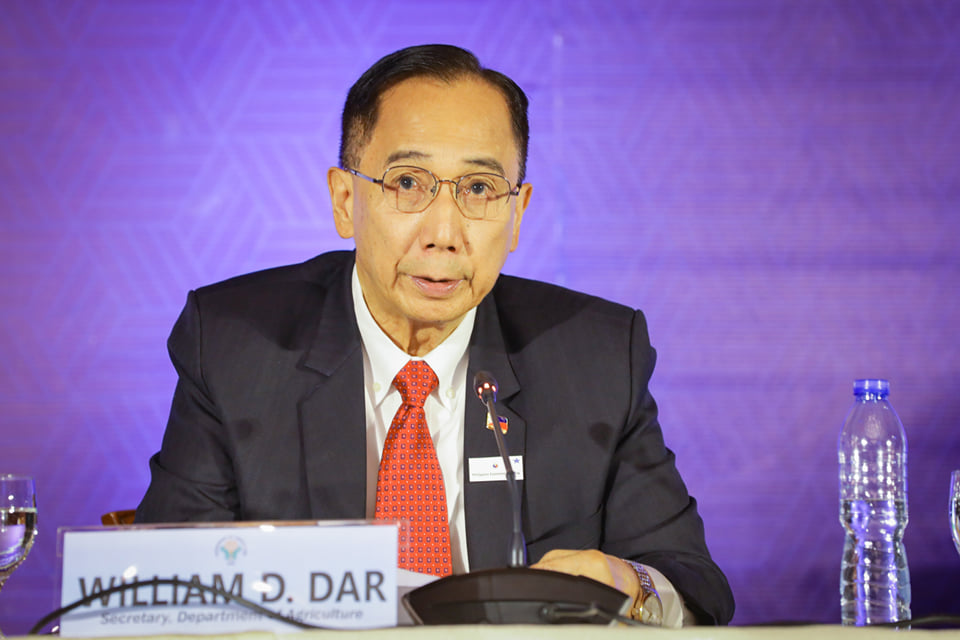
The Department of Agriculture (DA) is campaigning hard for the continuity of the “OneDA” Reform Agenda in the next administration to achieve food security in the near term, and food sovereignty thereafter.
“This reform agenda has four pillars and 18 key strategies. Implementation is only two and a half years old, and on a tight budget, we have known significant gains,” Agriculture Secretary William Dar shared during the press conference for the Philippine Economic Briefing held on April 5, 2022.
Asked how satisfied he is with his second stint as agri chief and what programs during his tenure would he recommend to the next leadership, he replied that he can only be satisfied in as much as the DA has made huge strides towards its “Masaganang Ani at Mataas na Kita” vision.
In the past year, the country achieved 92 percent (%) rice self-sufficiency with a record yield of 19.96 million metric tons (MMT) of palay from another record of 19.24MMT in 2020. An all-time high harvest of 8.3MMT in corn was also achieved in 2021.
Despite the pandemic and other crises faced by the agriculture and fisheries sector including the African swine fever, birth pains of the Rice Tariffication Law, and the occurrence of strong typhoons, Secretary Dar noted that there was no food shortage and food lines.
He added that the task now is to cultivate continuity in the services and expressed his hope to contribute to agri-fishery solutions to ensure stability in the next administration.
“We want to help the next administration by making recommendations for significant investments, at par with those of our ASEAN neighbors. Our ASEAN neighbors allot 4-5% of their national budgets to agriculture,” the agri chief said.
His specific recommendations include making significant investments in research and technology, completion of agri infrastructure such as farm-to-market roads and agribusiness industrial corridors, fast-tracking farm consolidation, and professionalizing the sector.
Secretary Dar also noted that the successes of the Plant, Plant, Plant Program Part 1 were carried out on a limited budget and the Program’s Part 2 is underway. Thus, the DA continues the call for significant budgetary support that is about triple the current budget to realize gains.
“Of late, we have laid out an extended vision. We do hope the next agricultural leadership will adopt it, but at least we put it out there,” the agri chief expressed. (Gumamela Celes Bejarin, DA-AFID)















